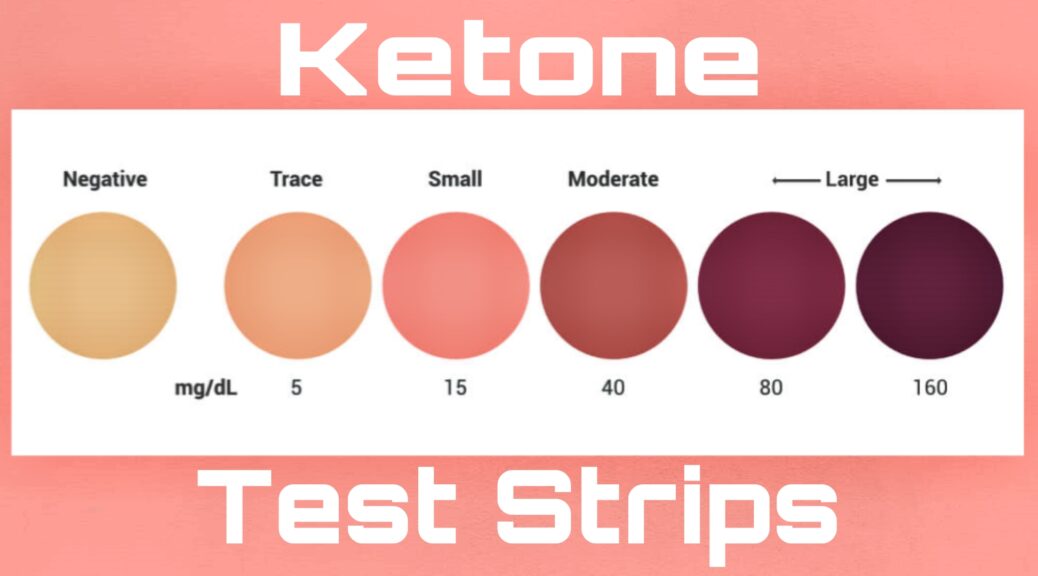
Ketone test
Ketosis is the process of burning body fat for energy and can be measured when following a low-carb ketogenic diet. Whilst we can all measure our weight to see whether weight loss is occurring, there are several reasons why measuring ketosis can be better. Our weight can go up and down through the day but this won’t tell us whether we are actually burning body fat. if you’re exercising and putting on muscles the scales will only show weight loss stalling or a gain in weight and won’t show you whether you’re gaining muscle whilst also losing body fat.
Measuring ketone levels can help much more directly therefore as the production of ketones is a direct result of fat burning. Just as Blood Sugar levels vary through the day, depending on what we’ve eaten and how our body is coping with metabolizing the food, ketone levels can also change through the day in response to the food we eat and how our body copes in response.
What are ketones?
- Ketones are a class of organic compounds that the body produces when it burns fat for energy.
- The blood always contains three types of ketones:
- acetoacetate (AcAc)
- 3-β-hydroxybutyrate (3HB)
- Acetone
- The body uses a range of nutrients for energy, including carbohydrates, fats and protein. It will use carbohydrates first, but if none are available, the body will burn fat. As the body breaks down fats, it produces ketones. This is known as a state of Ketosis. Ketosis does not cause the blood to become acidic.
What should my ketone levels be?
- If your primary goal for integrating the ketogenic diet into your life is weight loss, achieving light nutritional ketosis or 0.5 mmol/L-1.0 mmol/L, is a good starting point. From there, aim for optimal ketosis, which is when your ketone levels are between 1.0 mmol/L-3.0 mmol/L.
- People looking to use the ketogenic diet for therapeutic benefits for medical conditions such as epilepsy, cancer, or endocrine and metabolic disorders, are generally directed to aim for much higher ketone levels—specifically in the 3.0 mmol/L -5.0 mmol/L range, or somewhere in between.
- People who are fasting or eat a much higher fat-to-protein ratio will look to levels in the 3.0 mmol/L-8.0 mmol/L range. The optimal ketosis range is called “optimal” for a reason, and it’s exactly where you’ll want to be for weight loss and general health purposes.
How Accurate Are Ketone Strips?
Urine strips are a good tool to measure whether you’re in ketosis during the first few weeks of going keto. During this time, your body can’t use ketones efficiently for energy, and so you urinate many of them out of keto strips may indicate that your urine contains only trace amounts of ketones, if any. This can mislead people into thinking they’re no longer in ketosis, which may not be the case it’s important to consider the higher price of the blood strips and whether you want to prick your finger every time you measure your ketone levels.
Testing ketone levels
People with insulin dependent diabetes should take a ketone test:
- Any time your blood sugar is over 17 mmol/l (300 mg/dl)
- If sugar levels have repeatedly been over 13 mmol/l (230 mg/dl)
- If you are unwell and have any of the symptoms of Ketoacidosis
How to do a blood ketone test
A blood ketone test is carried out in a similar way to a blood glucose test Put a blood ketone strip into the meter
- Prick your finger using the lancing device
- Allow blood to the ketone strip
- Wait for the result
- Safely discard the test strip
- Discard the lancet into a sharps bin
How to do a Urine Ketone test
- A urine testing kit will include a set of strips, sometimes foil-wrapped. To use the test, a person should check that the test is not out of date and follow the instructions on the packaging.
- Urine testing kits will usually include a colour-coded strip that a person needs to dip in the urine. It will change colour to indicate high levels of ketone, glucose, or protein.
Understanding the results
The amount of ketone in the blood can be either low/normal, medium/moderate, or high/large. It is a sign that a person’s diabetes may not be under control. Having high levels of ketones is also a risk factor for DKA. There are three key reasons why a person would have moderate or high levels of ketones in their blood:
- Lack of insulin in the blood: Someone with diabetes may need to adjust the amount of insulin they take.
- Low blood sugar: Also known as hypoglycemia it most often occurs in the morning when insulin levels drop.
- Not having eaten enough food: Someone with diabetes needs to eat regularly, so as not to let blood sugar levels drop.
Click on the below link for the Keto test





